This week was one of the most intense yet extraordinarily rewarding weeks of the past year. I participated in a week-long (well, 4 days, but you have to include travel to Bloomington too!) polycentricity workshop at the Ostrom Workshop. For many years, the idea of multilevel, nested, non-hierarchical models of governance of natural resources and public service delivery has been on the mind of many scholars, but the Ostrom group (understood as Elinor Ostrom, Vincent Ostrom and their former students and research associates) have done an extraordinary job of bringing the concept back. This year, after the IASC 2015 meeting in Edmonton (where I also presented and organized a polycentricity panel) Andreas Thiel, Bill Blomquist and Dustin Garrick set the foundations for an authors’ workshop to be held in December of 2015. The goal of the workshop was to start building a shared, common conceptual understanding of what polycentricity means, does, achieves and doesn’t achieves, and whether polycentric resource and public service delivery governance models are the “right” ones.
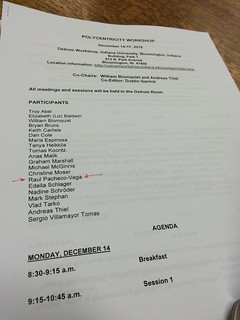 I have to admit that I was a little nervous about participating as several participants (Dan Cole, Mike McGinnis, Bill Blomquist, Edella Schlager, Bryan Bruns, Vlad Tarko, Tanya Heikkila just to mention a few) have been working on polycentricity for much longer than I have, and I profoundly respect their work. But as I wrote in my other post, being part of “The Cult” (as we Workshoppers sometimes call ourselves) made the experience an extraordinarily rewarding one. I presented on whether we can look at polycentricity as an emerging property of a system (using Complex Adaptive Systems theory, and exploring cases of Mexican river basin councils). This paper builds on earlier iterations that I presented at IASC 2013, IASC 2015 and WOW5. It is obvious that spending 4 intense days, 8 hours a day basically thinking, reflecting, writing, reading and presenting each other’s work on polycentricity may be daunting and exhausting. But it was very rewarding too.
I have to admit that I was a little nervous about participating as several participants (Dan Cole, Mike McGinnis, Bill Blomquist, Edella Schlager, Bryan Bruns, Vlad Tarko, Tanya Heikkila just to mention a few) have been working on polycentricity for much longer than I have, and I profoundly respect their work. But as I wrote in my other post, being part of “The Cult” (as we Workshoppers sometimes call ourselves) made the experience an extraordinarily rewarding one. I presented on whether we can look at polycentricity as an emerging property of a system (using Complex Adaptive Systems theory, and exploring cases of Mexican river basin councils). This paper builds on earlier iterations that I presented at IASC 2013, IASC 2015 and WOW5. It is obvious that spending 4 intense days, 8 hours a day basically thinking, reflecting, writing, reading and presenting each other’s work on polycentricity may be daunting and exhausting. But it was very rewarding too.
There’s a number of lessons I can draw from this workshop, but I think the main one is: always be prepared and willing to listen and learn. What we accomplished in those 4 days is something that will stay with me for decades to come. It was literally a brain-candy-fest. The high level of discussion, the kindness with which feedback was delivered, the willingness to work together (let’s not forget Lin’s last book with Marco Janssen and Amy Potteete was “Working Together”) was astonishing. I literally did not want to come back home.
There will be a number of products arising from this workshop (a special issue, one or two books, and several articles by all authors), and I look forward to producing some of these myself, both in coauthorship and on my own. Thanks Andreas for the funding, the invitation, for collaborating with me during the workshop and future products, and for your initiative, and to Nadine for the help with all logistics to run the workshop, Dave, Gail and Patty for all your help with the workshop at the Ostrom Workshop, Dustin and Bill also for inviting me and spearheading this initiative, and every single one of the participants for an enriching experience. Tom, Tanya, Edella, Anas, Dan, Mike, Liz, Maria, everyone, I loved spending this week with you. Looking forward to seeing what 2016 will bring for us in the polycentricity realm!
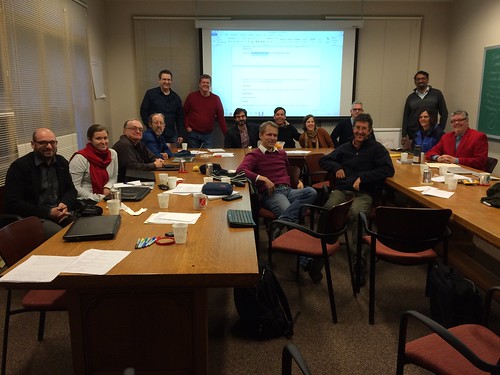
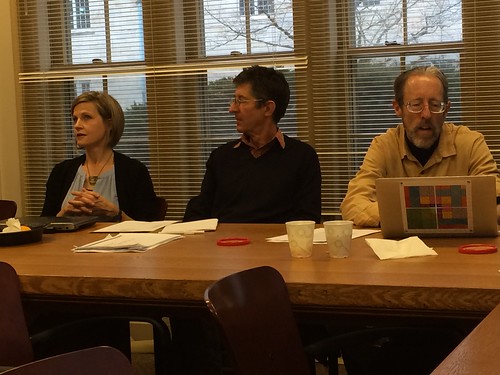
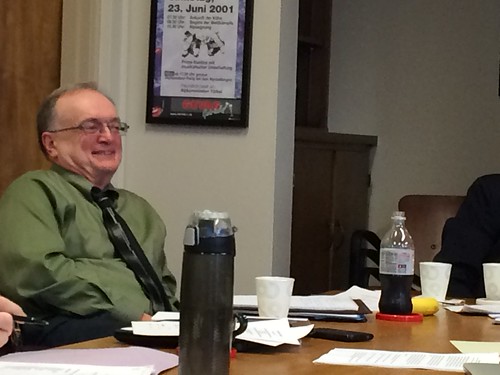
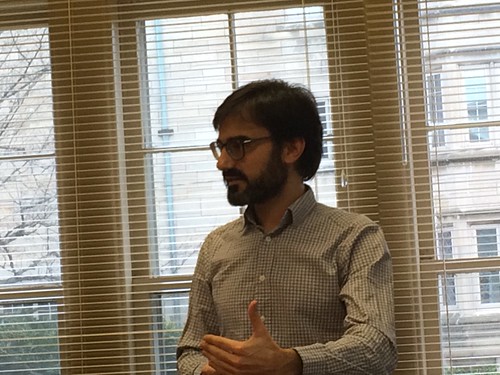
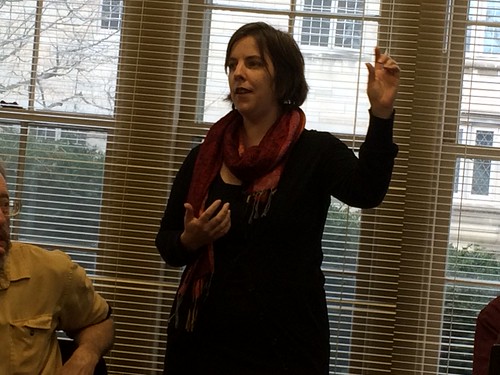
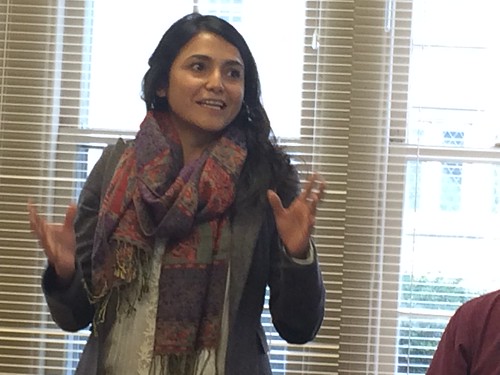
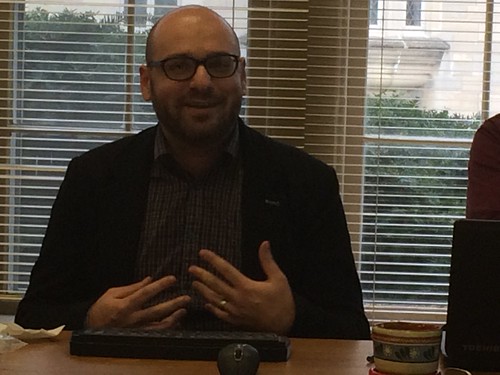
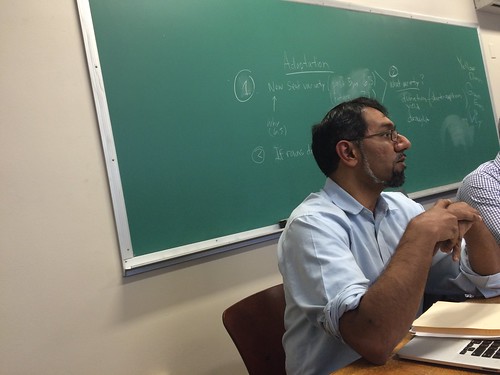
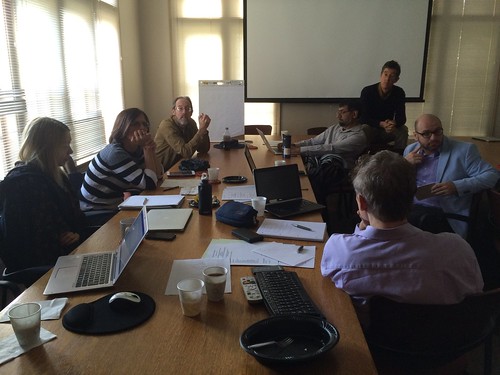
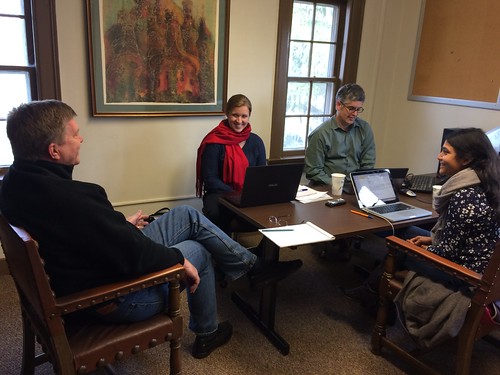
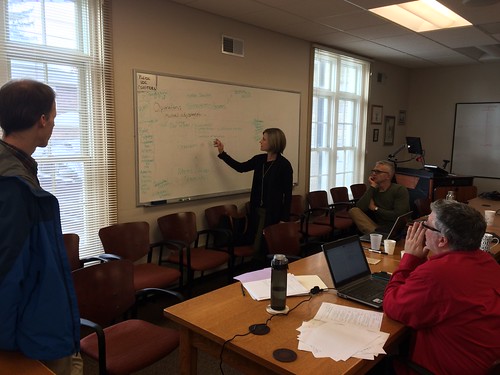
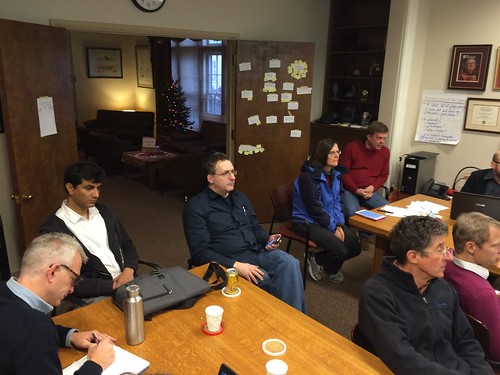
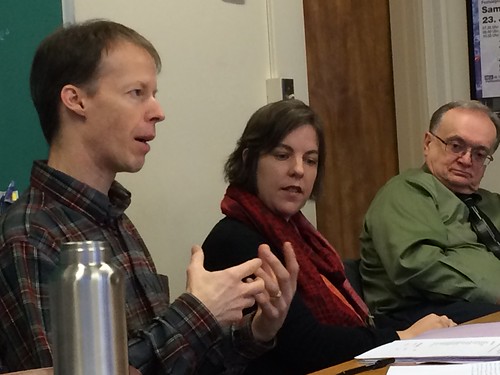

0 Responses
Stay in touch with the conversation, subscribe to the RSS feed for comments on this post.